Key takeaways:
- Anxiety significantly affects individuals experiencing homelessness, exacerbated by instability and isolation.
- Grounding exercises, physical activity, and establishing a routine are effective coping strategies for managing anxiety.
- Maintaining daily practices like mindfulness meditation, journaling, and connecting with others can help manage anxiety and foster community support.
- Seeking professional help and joining support groups provide valuable resources for addressing anxiety and building resilience.
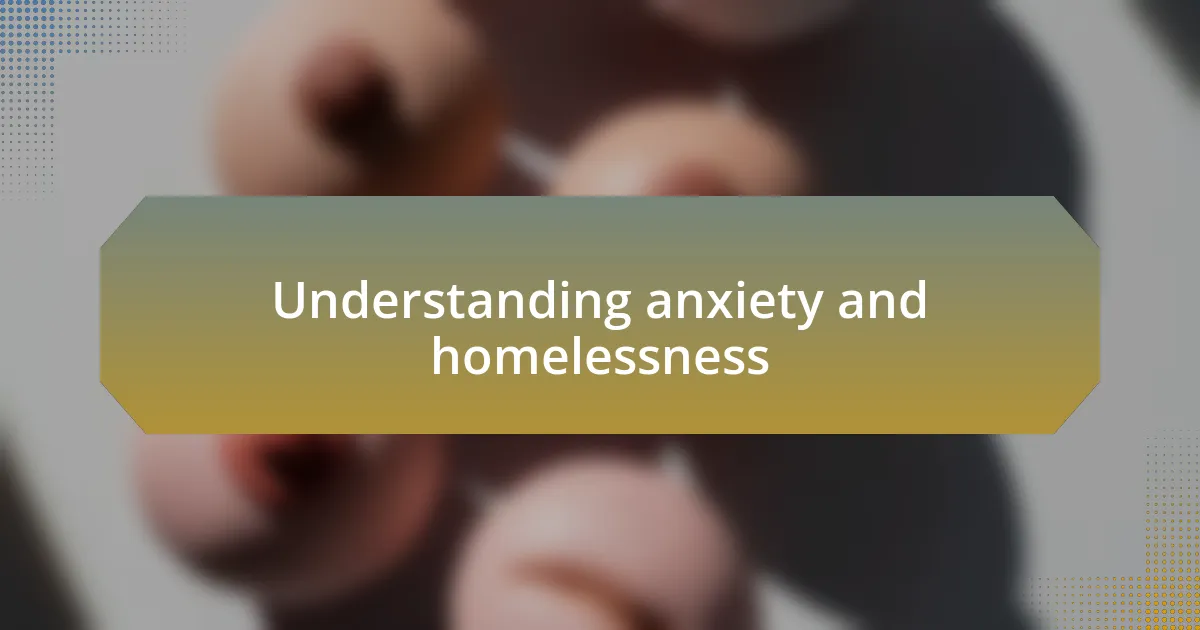
Understanding anxiety and homelessness
For many individuals experiencing homelessness, anxiety can feel like an unwavering companion, constantly clouding their thoughts and actions. I remember a time when a close friend, who faced housing instability, would often share how the unpredictability of her environment heightened her anxiety. How can anyone find peace when each day brings new uncertainties?
Living without a stable home not only exacerbates stress but also creates a vicious cycle of anxiety that can be hard to escape. I’ve seen people struggle to find a moment of calm in the chaos, often worrying about basic needs like food, safety, and shelter. It’s a profound illustration of how our environment can profoundly influence our mental health.
Moreover, anxiety doesn’t just stem from immediate fears; it often grows from isolation and lack of resources. I once volunteered at a shelter where guests spoke about feeling invisible to society, and that solitude only deepened their anxiety. How can we expect someone to manage their mental health when they feel invisible and unheard? This connection between anxiety and homelessness is not just a statistic; it’s a pressing reality for many.
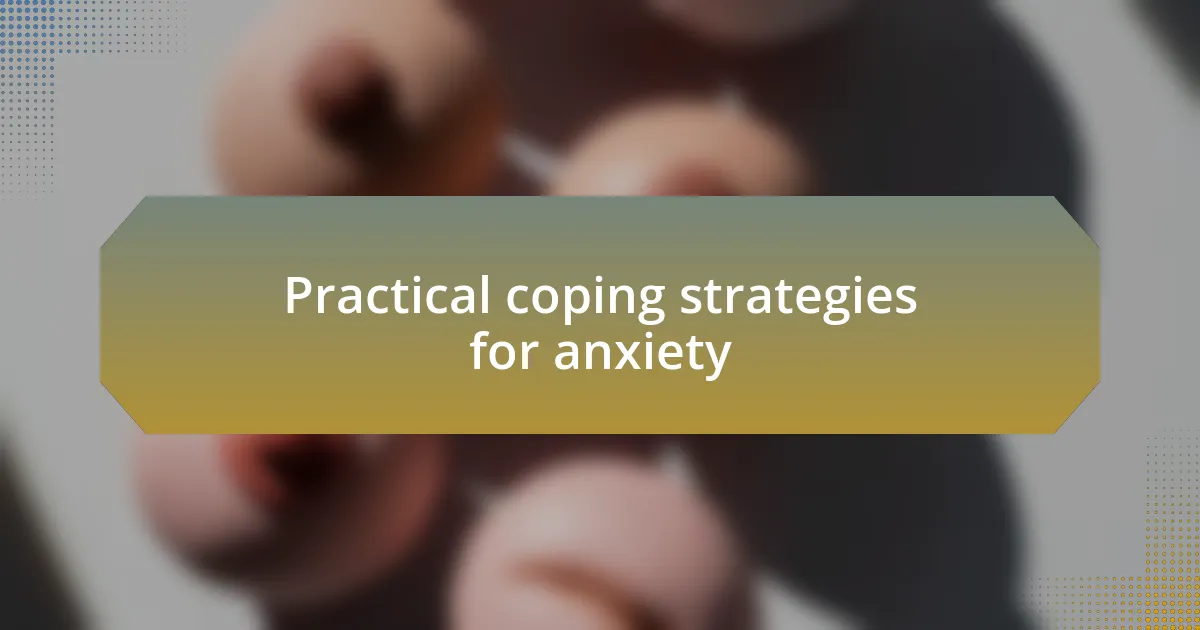
Practical coping strategies for anxiety
Finding healthy coping strategies for anxiety can make a significant difference in daily life, especially for those facing homelessness. One method I’ve found effective is grounding exercises, which help pull your focus back to the present. For instance, when I feel overwhelmed, I take a moment to identify five things I can see, four I can touch, three I can hear, two I can smell, and one I can taste. This simple practice can create a sense of calm amidst chaos.
Physical activity can also be a powerful ally in combating anxiety. I remember attending a community yoga class that was offered at the local shelter. It was amazing to see how movement could release pent-up tension and shift our mindset. Have you ever noticed how a brisk walk or a run can clear your mind? Engaging in physical activity releases endorphins, which can improve mood, making it a practical step for anyone.
Another strategy is establishing a routine, which can provide structure and predictability. I’ve seen how some individuals in transitional housing create a daily schedule that includes cooking, cleaning, or even just reading at a set time. This simple act of organization can reduce feelings of chaos and helplessness. Isn’t it fascinating how a little structure can transform one’s day, especially when life feels so unpredictable?
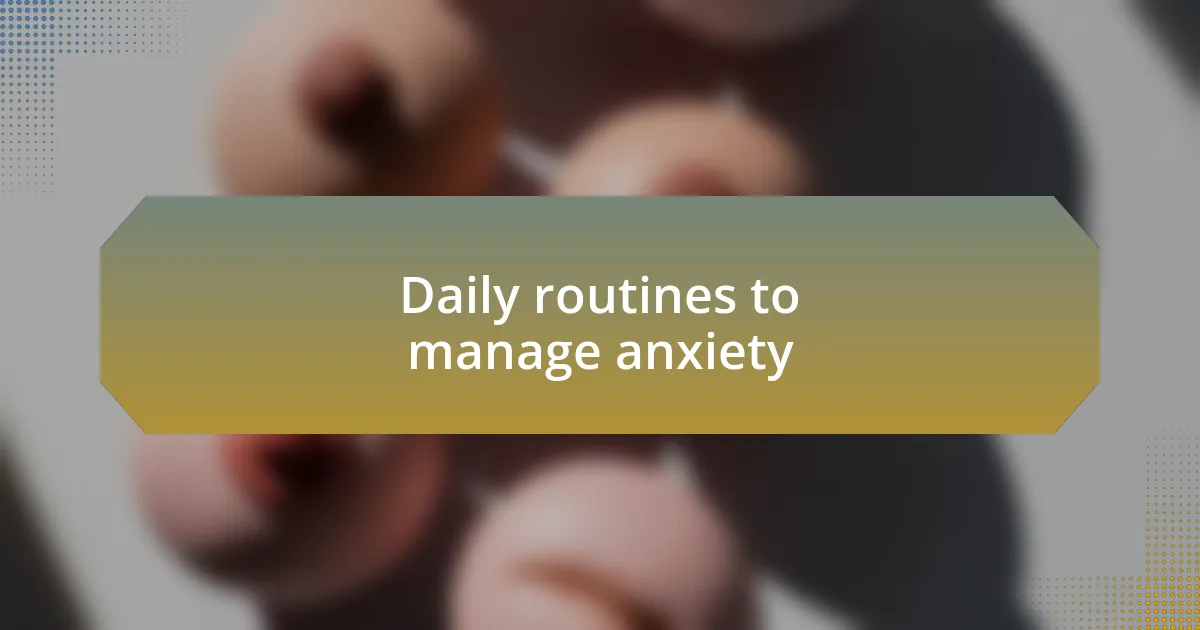
Daily routines to manage anxiety
One daily routine I’ve found particularly helpful is setting aside time for mindfulness meditation. Each morning, I take ten minutes to sit quietly, focusing on my breath. This practice not only calms my racing thoughts but also prepares me to face the day with a clearer mindset. Have you ever noticed how just a few minutes of stillness can help clear the mental fog?
In addition to meditation, I make it a point to connect with others. Each evening, I try to reach out to a friend or a fellow resident to chat about our day. This simple act fosters a sense of community and support, which can be incredibly reassuring when anxiety looms large. Isn’t it interesting how sharing our experiences can lighten our emotional load?
Another element of my daily routine is keeping a journal. I find that writing down my thoughts and feelings serves as an emotional release. It’s a safe space to express what’s on my mind without judgment. Have you ever tried putting pen to paper to unload your worries? It can be surprisingly cathartic, allowing clarity and perspective to emerge from the chaos.
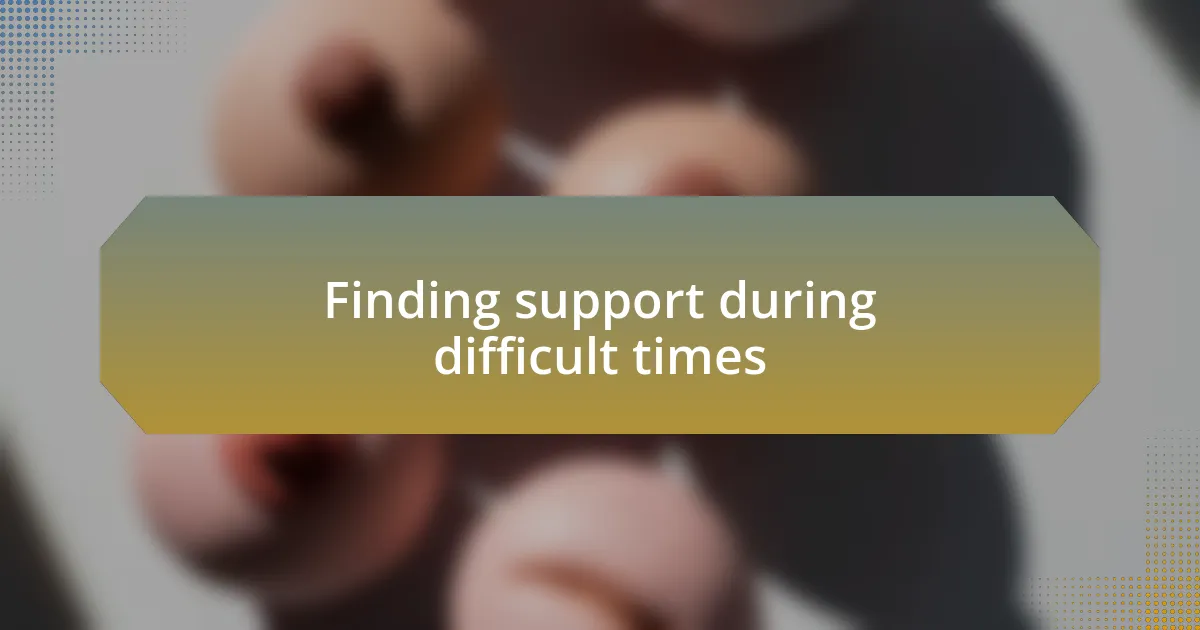
Finding support during difficult times
Finding support during difficult times is crucial, especially when anxiety feels overwhelming. I’ve experienced moments when just hearing a friend’s voice calmed my racing thoughts. It reminds me that I’m not alone in my struggles. Have you ever noticed how comforting it is to simply share what you’re going through with someone who understands?
Additionally, seeking help from professionals can make a significant difference. I remember when I first opened up to a counselor about my anxiety. It felt daunting at first, but having that dedicated space to unpack my feelings was transformative. Have you ever considered how talking to a trained listener can provide fresh perspectives and coping strategies?
Joining support groups has also been valuable in my journey. I recall attending a local meeting for others facing similar challenges; the connections I made helped me feel more grounded. The shared stories and solidarity offered a unique type of comfort. Isn’t it remarkable how shared experiences can foster healing and resilience?
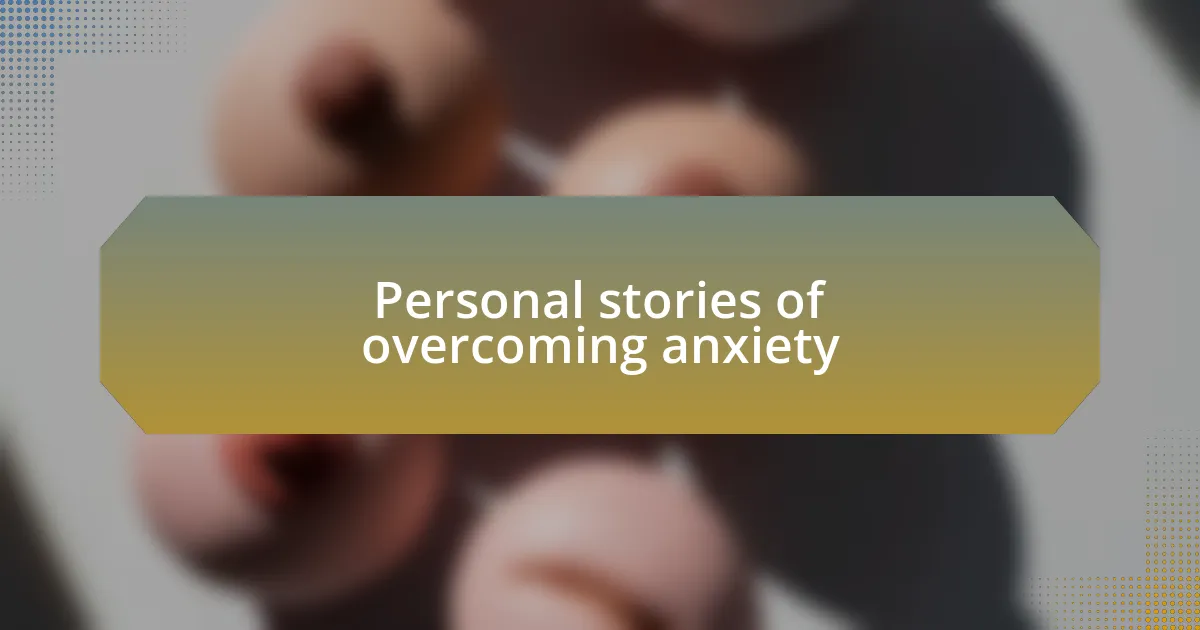
Personal stories of overcoming anxiety
Overcoming anxiety can often feel like a daunting task, yet I’ve found that embracing small, personal victories can lead to significant changes. I remember one particularly tough morning when my anxiety was nearly paralyzing. I decided to take a walk around my neighborhood instead of succumbing to my fears. Each step felt like reclaiming a piece of myself, and surprisingly, the fresh air began to soothe my mind. Have you ever noticed how a change of scenery can shift your perspective?
In another instance, I faced a challenging moment during a community event I was attending alone. The anxiety bubbled up, threatening to overpower me. But instead of retreating, I forced myself to engage with others, sharing a story about my journey. The relief of expressing my feelings not only quelled my anxiety that day but also connected me with others who understood my struggles. Isn’t it interesting how vulnerability can forge bonds and lessen the weight of our worries?
One of the biggest shifts in how I cope with anxiety came when I started journaling my thoughts. I recall one evening, reflecting on my day, and realizing the patterns of my anxiety were often linked to certain triggers. Writing them down helped me create a clearer picture of what I could control. Have you ever tried putting your feelings on paper? It can be a cathartic experience, transforming chaos into clarity and empowering you to face challenges head-on.